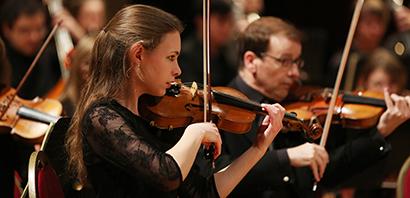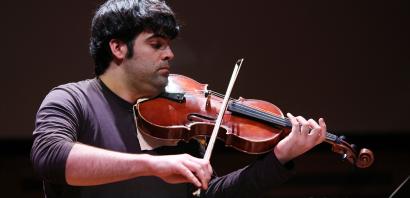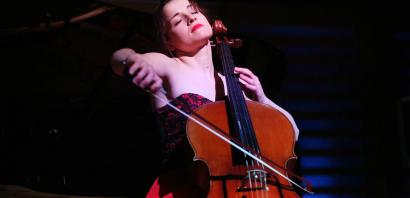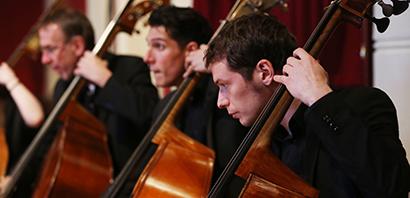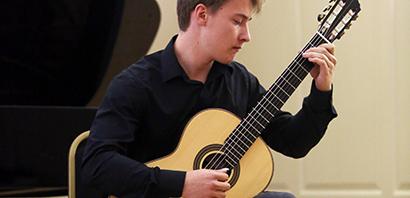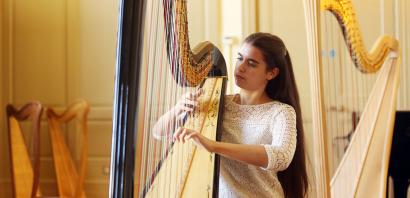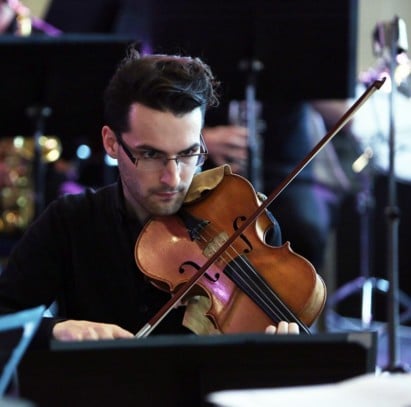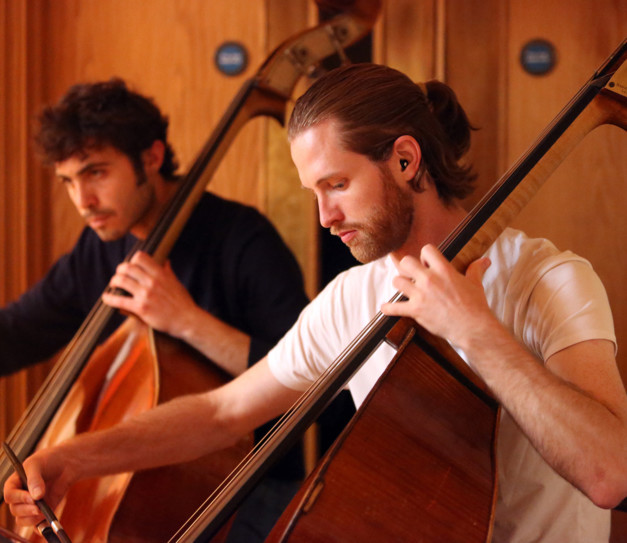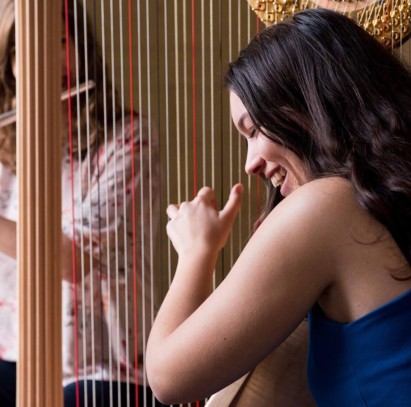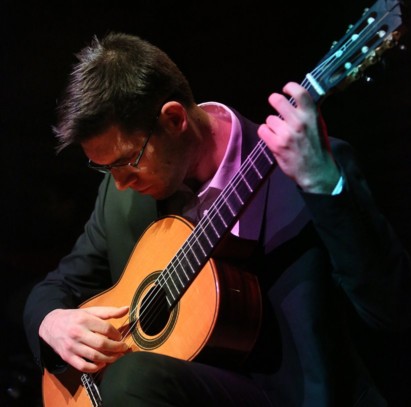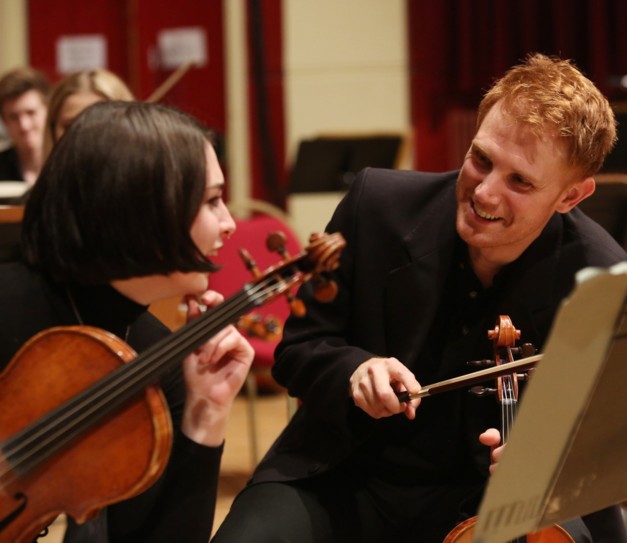Introduction
Today’s string musicians need to be dynamic and innovative, displaying the technical mastery and flexibility necessary succeed in the ever-evolving, diverse world of music.
Whether you aspire to be a chamber musician, soloist, orchestral or ensemble player, generative artist, or teacher, our carefully designed training prepares you for anything the professional world might throw at you. Through top class training and a supportive, highly creative environment, we will help you to excel and become ever more confident performing in a range of contexts, from concert platform and opera house to studio, festival or club.
We will help you become the very best musician you can be, enabling you to develop an enquiring musical mind and the technical security necessary to flourish as an artist in the 21st century.
Teaching
Individual tuition takes place weekly. These one-to-one lessons focus on repertoire, technique, stylistic issues, different genres, performance, sight reading and more. The classes are taught by leading professionals from a wide variety of backgrounds; world-class soloists, teachers and orchestral musicians.
You will also receive weekly Departmental classes are designed to equip you for the diverse world of professional music making, covering subjects ranging from audition skills to teaching methods, historically informed performance, and issues of healthy practice and performance.
Undergraduate students will also be able to enhance their musicianship through Principal Study Enhancement lessons, which include opportunities to undertake related or complementary study of a period instrument, jazz or a related instrument, such as viola for violinists.
Chamber music is a central focus of string training at Trinity Laban, with frequent coaching led by our internationally acclaimed staff, all of whom regularly perform in the country’s leading ensembles. We are fortunate to have resident chamber groups who visit regularly to give concerts and masterclasses.
Collaboration
Collaboration is a key part of all our students’ learning. As well as working with students across departments, we encourage you to experiment with less orthodox and newly imagined collaborations, bridging the barriers between art forms, working with students from the Faculty of Dance through our annual CoLab festival and beyond.
Performance
Solo/Chamber
Performance is at the core of your musical training. Weekly sign-up classes provide performance opportunities and a chance to receive feedback from both teaching staff and your peers. You will also have regular opportunities to perform in our recital series at the stunning Old Royal Naval College Chapel, our concert hall in Blackheath, St Alfege Church, and a host of other venues in the UK including Wigmore Hall. Students also have the opportunity to perform side by side with our renowned teaching staff. You will be encouraged to take part in a number of internal and external competitions. Paid external engagements are also available through an audition process.
Orchestras
Bowed string and harp students have regular opportunities to perform with a variety of large ensembles, including our Symphony Orchestra, Chamber and Opera Orchestras, String Ensemble, Contemporary Music Group, Pit Band, Sinfonia and Side by Side projects where principal players from top UK orchestras perform with our players. Students have the opportunity to perform in a number of London venues including Blackheath Halls, Cadogan Hall, the Queen Elizabeth Hall and the Royal Festival Hall. There are also opportunities to tour nationally and internationally. Guitar and harp students also participate in large ensemble activity as members of the Trinity Laban Guitar Orchestra and the Harp Ensemble.
Find out more about Music Performance Opportunities.
Facilities and Instruments
Trinity Laban has a fine collection of bowed string instruments, guitars and harps, including period instruments, available on short-term loan. You will also enjoy the benefits of an on-site Luthier who is able to re-hair bows and repair instruments.
Your Audition
We are encouraging applicants to audition in person where possible. However, if for whatever reason you are unable to attend a live audition in London online recorded auditions are available for all applicants.
In-person Auditions
Prior to audition, you must apply via UCAS Conservatoires. All auditions will be held in London at our Music Faculty between mid-November and mid-December. The address for the Music Faculty is: Trinity Laban Conservatoire of Music and Dance, King Charles Court, Old Royal Naval College, Greenwich, London SE10 9JF.
We will endeavour to schedule your audition as soon as possible and will update you with your audition date and time via UCAS Conservatoires and email. If you have any issues making this time, please let us know as soon as possible on the email on this page.
Audition Requirements
- All auditions will include a short discussion with the panel
- We do not have a dress code for auditions
- Where applicable an accompanist will be provided for you, you will have a rehearsal time of around 10 minutes with the accompanist prior to your audition. If you are bringing your own accompanist, let us know as soon as possible on the email below.
- If you have any accessibility requirements, please contact StudentServicesEnquiries@trinitylaban.ac.uk.
- Auditions do not include a written paper
- If you have also applied for BA Music Performance and Industry, details will be sent separately. You can find information on audition requirements and submission deadlines here.
Undergraduate Programmes (FCM, IFCM, BMUS)
Applicants should prepare two contrasting pieces which together should last no longer than 15 minutes. The two works should demonstrate contrasting style and techniques.
Applicants will also be asked to perform a short piece of prepared sight-reading given upon entrance to the warm up room.
Postgraduate Programmes (Graduate/Professional/Artist Diplomas, MMUS, MAMEP)
Applicants should prepare a contrasting and suitably demanding programme demonstrating a variety of technical and musical challenges. The programme should last no longer than 20 minutes in total.
Applicants will also be asked to perform a short piece of prepared sight-reading given upon entrance to the warm up room.
Recorded Auditions
Prior to submitting a recorded audition, you must apply via UCAS Conservatoires. Recordings will not be considered until a UCAS Conservatoires application has been submitted. When asked on UCAS Conservatoires where you wish to audition, simply click ‘recorded audition’ or ‘online’. You can watch our tutorial on submitting your UCAS Conservatoires application, for step-by-step instructions. Once you’ve submitted your application, our admissions team will be in touch with further information. Please keep an eye on your emails and check your spam inbox.
The deadline for submission of recorded audition materials is 27 October 2023.
Recording Your Audition
There should be two elements to your recording: a speech and a performance. You must submit a video recording of your speech and performance, and not only an audio recording. We do not require high production recordings, normally a recording on a phone or digital camera will suffice, but please check that the audio and video quality is clear before submitting your auditions.
We recommend sourcing a live accompanist if possible, however we can accept pre-recorded backing tracks and unaccompanied recordings. If you are playing with others, please make it clear who you are in the recording. There is no dress code for recorded auditions.
For the speech, you should record a passage of yourself speaking in English. For your speech you should:
- Introduce yourself by name
- Talk about your musical background and the training you’ve had
- Talk about your musical ambitions and your reasons for applying for the programme of study.
For the performance, you should record two to three works (or extracts) – further information on instrument requirements are below. Please note that the panel will wish to have some idea of the range of your ability, so provide works that demonstrate contrasting musical styles and instrumental/vocal technique.
You may be invited to an online discussion with the panel via Zoom, you will be updated via email if this has been scheduled.
Undergraduate Programmes (FCM, IFCM, BMUS)
Applicants should prepare two contrasting pieces which together should last no longer than 15 minutes. The two works should demonstrate contrasting style and techniques.
Postgraduate Programmes (Graduate/Professional/Artist Diplomas, MMUS, MAMEP)
Applicants should prepare a contrasting and suitably demanding programme demonstrating a variety of technical and musical challenges. The programme should last no longer than 20 minutes in total.
Submitting Your Audition on Embark
You must submit your audition via Embark. To submit a recorded audition, you will first need to create an account before submitting your recordings or portfolio. For step-by-step guidance on submitting your recorded auditions, watch our Embark tutorial.
You can submit multiple files to Embark (i.e. your audition does not need to be submitted as one take). If you have any issues with uploading your files, you can also upload your files to a video sharing website (such as YouTube or Vimeo) and paste the links into a word or PDF document to upload into the Additional Documents section.
You do not need to submit materials for every section, e.g. you only need to submit Transcripts or Additional Documents if you would like the panel to see these.
There are no written papers for auditions.
Please note, if the performance on the recording is found not to be your own, the place will be withdrawn immediately and no fees will be refunded.
If you have any questions, please don’t hesitate to get in touch: admissions@trinitylaban.ac.uk
Masterclasses
Your learning is also enhanced by regular visits from acclaimed international performers, who share their skills and experience in our masterclass series. Recent visiting artists have included: Tasmin Little, Anthony Marwood, Mi-Kyung Lee, Mincho Minchev, Ivo van der Werff, Lawrence Power, Alexander Zemtsov, Leonid Gorokhov, Pieter Wispelwey, Raphael Wallfisch, Ralph Kirshbaum, Joel Quarrington, Alberto Bocini, José Antonio Escobar, John Mills, Fabrice Pierre and Isabelle Perrin.
One recent highlight was a masterclass series from principal players of the Berlin Philharmonic Orchestra, including Marie-Pierre Langlamet (harp), Martin Löhr (cello) and Matthew McDonald (double bass).
Graduates
Graduates of our String Department go on to work in all areas of the profession. Notable recent alumni include:
Serafina Steer was the recipient of The Paul Hamlyn Foundation Awards for Artists 2017. For composition work.
Elizabeth McNulty is Principal Harpist with The Royal Liverpool Philharmonic Orchestra and also freelances with other orchestras, including The London Philharmonic Orchestra, The English National Ballet and London Concert Orchestra.
Artem Kotov is a violinist in the Moscow Soloists Chamber Orchestra.
Grigory Tsyganov is Principal Viola and soloist with the Jyväskylä Sinfonia.
Alexei Kiseliov is Principal Cello of the Royal Scottish National Orchestra.
Tom Beer is Principal Viola with the Bournemouth Symphony Orchestra.
Stjepan Hauser forms one half of acclaimed duo 2CELLOS who are touring their latest album, internationally.
Tony Hougham is Principal Double Bass at the Royal Opera House and guest Principal with the London Symphony Orchestra, the London Philharmonic Orchestra, the Philharmonia and the Royal Philharmonic Orchestra.
Stefan Melovski is a guitarist who performs his own arrangements in classical recitals, alongside directing and playing with various jazz and folk ensembles. He also co-founded the Balkan band, ‘Op Sa!’, who have performed at numerous prestigious venues.
Milana Zaric is Principal Harp at the Belgrade Philharmonic
String alumni are also extremely well represented within elite youth and training orchestras. For 2017, three alumni (Elin Parry, Andrea Montalbano and Claire Sledd) were selected to perform with Southbank Sinfonia, which brings together 33 outstanding graduates from around the world.
To view the impressive organisations that our alumni have worked with, visit Alumni Destinations.
For more information on the successes of Trinity Laban Strings graduates and what they have to say about the course, visit Alumni Profiles.
Strings at Trinity Laban
Our students perform alongside top UK orchestras and at leading venues around London. Take a look at our gallery for an insight into the Strings Department at Trinity Laban.
- 1 - Trinity Laban Contemporary Music Group
- 2 - Trinity Laban String Ensemble, performing Gabriel Fauré's Nocturne
- 3 - Trinity Laban Chamber Music Harpist
- 4 - The Gold Medal Competition, held at Kings Place, London
- 5 - Side by Side project with members of the Bournemouth Symphony Orchestra
-
News
Blackheath Halls celebrates remarkable venue transformation
Sir Bryn Terfel, the Blackheath Halls Youth Choir and TL Jazz students performed for HRH The Duke of Kent to celebrate the completion of Blackheath Halls’s remarkable renovation.Thu 25 April 2024 -
News
Trinity Laban Symphony Orchestra celebrates the work of Black British composers
This spring, Trinity Laban Symphony Orchestra performed works by Eleanor Alberga and Daniel Kidane, alongside Britten’s orchestral interludes from his best-known opera and a new work by one of TL's talented composition students.Mon 22 April 2024

